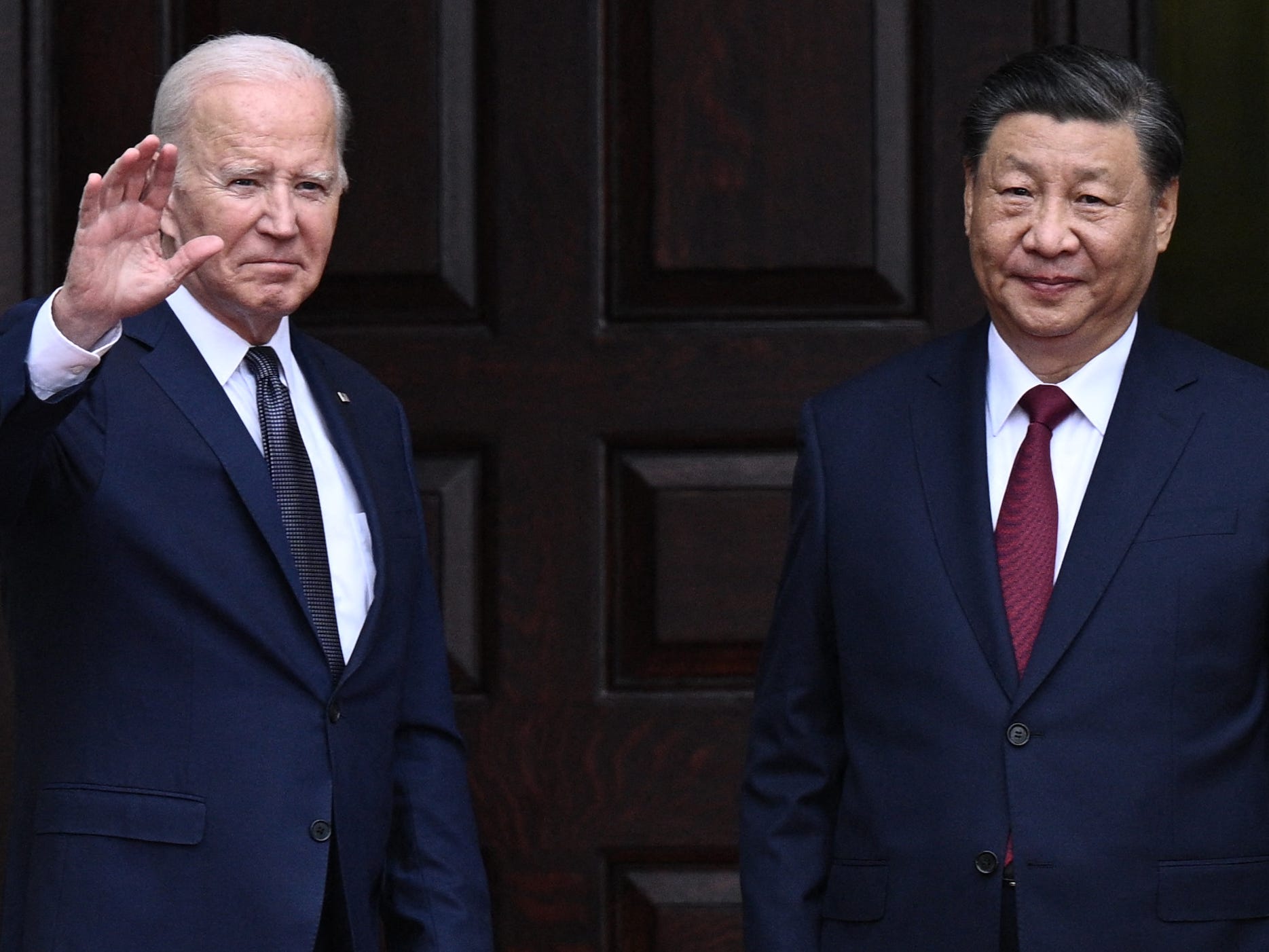The US and China are engaging more. But that doesn't mean they trust each other more, an analyst said.
BRENDAN SMIALOWSKI/AFP via Getty Images)
US and China's engagements don't mean they trust each other more, said Eurasia Group's Ian Bremmer.Washington and China still disagree on many issues, including trade, tech, and geopolitics.Increased communications have stabilized tensions over Taiwan.The US and China have been engaging more with each other. But just because they're talking more doesn't mean that they actually trust each other more, an analyst said on Wednesday.
"The trend for this year has been more engagement, more communications, but not more trust," Ian Bremmer, the president and founder of political risk consultancy Eurasia Group, told Bloomberg TV on Wednesday.
In November, US President Joe Biden and Chinese leader Xi Jinping met during the APEC summit in San Francisco, appearing keen to smooth over tensions. Since then, there's been more stability in the US-China relationship, said Bremmer.
Earlier this month, Treasury Secretary Janet Yellen visited China, seeking cooperation in areas beneficial to both countries. Defense Secretary Lloyd Austin also spoke with China's defense minister last week. Secretary of State Anthony Blinken is due in China on Wednesday.
The rash of high-level meetings signals a thaw in US-China relations — even if the two do not agree with each other over many issues.
"That means you still have plenty of areas that the countries are unhappy with each other, but when there is conflict, the conflict does not escalate out of control — rather, the escalations are targeted and calibrated," Bremmer told Bloomberg TV.
It's a matter of seeing the glass as being half full or half empty.
"So we can say that the relationship is getting worse, it's true, but it's getting worse quite slowly and there's more stability to the relationship," said Bremmer.
US-China communication has stabilized tensions over Taiwan
The big upside to increased communications between the US and China is that the world's top two global powers are less likely to have a direct clash.
This is the reason Washington and Beijing's tensions over Taiwan — which Beijing claims as its own territory — have been relatively stable.
"The US and China know each other's red lines" and the challenges in this relationship after decades of communication, making "extremely nuanced calibrations" an easier task, said Bremmer.
He said that this understanding between the US and China is why there was no "strong and sudden escalation that brought the two sides to crisis" after Taiwanese Vice President William Lai — whom Beijing views as a separatist — won Taiwan's presidential election in January.
"It's always better to have more engagement, more conversations — especially when you don't trust each other," Bremmer said.


